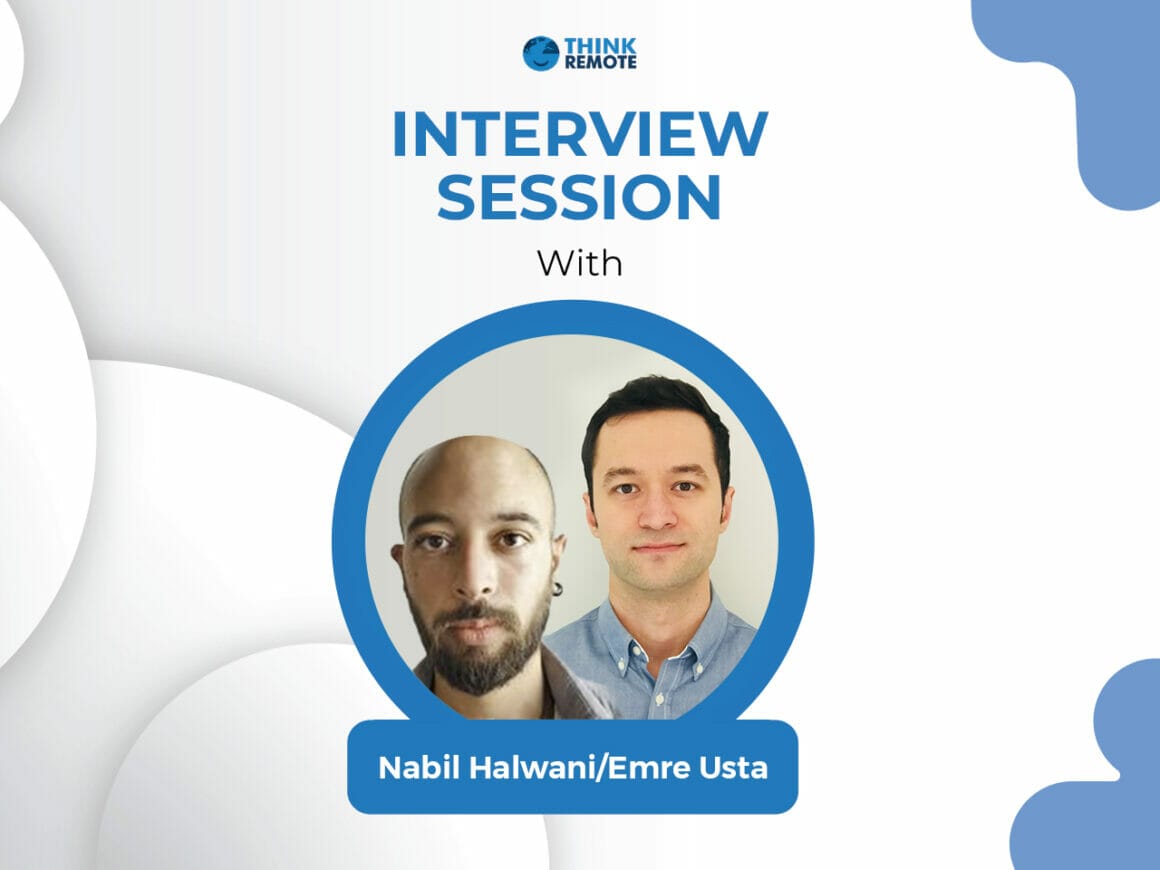SPARK! is an international development NGO promoting remote internships for refugees and fragile youth. Based in Amsterdam, the organization has been supporting refugees and fragile youth in complex situations for over 26 years.
Their programs combine education and employment strategies to provide equal job opportunities and support local economies worldwide. Their network provides remote internships with international companies, offering young talent and better employment opportunities for young people.
Combining businesses and social needs, SPARK! It is an example of the potential of remote work to face challenges and issues of the current global situation.
Here is a conversation with Emre Usta and Nabil Halawani to find out more about their mission and programs:
Remote Internships for Business and Social Solutions: In conversation with SPARK!
1. To start, could you tell us something about SPARK? What is it about, and how does that story begin?
SPARK is an international development NGO supporting fragile youth with employability and entrepreneurship support working across countries like the Middle East or Africa.
It all started in 1994 in Amsterdam, following the Yugoslavia war in 1994. A group of students got together to found an NGO to support refugees and youth. Our main goal has always been to provide different types of education to help young people achieve technical qualifications and soft skills in difficult situations.
The idea is to provide scholarship, education, and complete training to gain skills in different fields to access better jobs. Our work starts with the problem of unemployment. Refugees crisis means difficulties completing educational courses or accessing local jobs to grow professionally.
For this reason, our organization wants to provide remote work opportunities offering new talent to companies and real opportunities to young people. Working on both sides, we aim to create channels across different countries to provide better jobs and international talent. Thanks to donors like the Dutch Postcode Lottery, we are creating job placement opportunities across 14 countries.
Following our goal related to education, we also shifted our focus on employability. Remote work allows expanding our channels to provide more opportunities to young people. Remote internships and jobs are a strategy to support people in their local context and access better job opportunities. Finally, we want to focus on social cohesion, increasing our network, and providing social support for refugees and fragile youth.
2. Why do you think it’s essential to support young job seekers to gain work experience in these complex times?
One of our first missions is to support refugees in rebuilding their countries. Many factors are coming into play, but the long-run scope is to create solid channels for young people to access better jobs and support their local communities.
Also, we believe these people deserve access to better opportunities despite the global situation. If they can give an example of better alternatives to grow professionally, they can inspire their communities and support their families and neighborhood, including the human aspe
3. Let’s talk about one of your latest projects. In collaboration with Dutch Postcode Lottery, your association launched a remote internship program targeting refugee and vulnerable youth in the Middle East. How did the initiative start, and what’s the motivation behind it?
This project is very important for us. We connected with universities in different countries, like Lebanon and Iraq, to support young people getting their diplomas. However, the job market in the Middle East is challenging, even with high education certificates. For this reason, we connected with local and international organizations to help them fulfill their potential, for example, focusing on their language and technical talent.
Remote internships are effective strategies to convince companies to expand their employment channels on the one hand and on the other to provide real employment opportunities. Most of our participants get a job offer from the company they interned, showing how this strategy is successful for both sides.
4. How do you think this program can help vulnerable youth for inclusivity and future opportunities?
For this question, I would give you the example of an Iraqi girl. Shang Khalil is 21, and is a medical student living in the rural area of Sulaymaniyah. Besides her studies in medicine, Shang is really talented with content creation and Youtube videos. She applied for our internship and got a remote position as a content creator and Social Media at an international marketing agency based in Dubai.
By becoming part of an international team, she could expand her skillset. In addition, she could inspire other young people in her area with her Social Media channels. So, this program can potentially make a social and effective impact.
6. Which was the response to this program for companies and participants?
Both companies and interns were very happy about the program despite the global pandemic and challenges related to the pandemic. Everyone felt the potential of this solution, even for entry jobs.
For example, pandemic-related job losses and job openings decreased by 13.74% in Iraq. (World Bank). So, providing remote internships was an effective solution for companies that could save their company budget and carry on with their activities despite COVID restrictions. And for young people who could access better jobs and support their families in these difficult times.
7. Especially in terms of inclusivity and equality, do you think more projects like your program can offer concrete opportunities for minorities and vulnerable youth?
Because of political threats, mobility and employment are a massive challenge for young people from certain countries. From Visa processes to infrastructures, remote work is also a solution for transaction problems for digital businesses. Creating these types of opportunities leads to an improvement of the local infrastructure and network. Finally, remote job opportunities also support women with families. They can access jobs and have higher educations having time to take care of their children and families.
8. What are your future plans and initiatives?
We aim to expand our 2020 pilot program. The project was co-financed by the Dutch Ministry of Foreign Affairs, Islamic Development Bank (IsDB), Islamic Solidarity Fund for Development (ISFD) through the Tadamon program, and the Dutch Postcode Lottery. Collaborating with different donors, we want to further implement employment opportunities in the Middle East, promoting more remote opportunities.
Finally, we are organizing our annual conference, IGNITE, to re-imaging employability and job openings. And we have been nominated for the PIEoneer Employability international impact award for our remote internship program – so lots of things happening!
9. Last question (for speculation). Do you think the impact of the current crisis, from the pandemic to climate, can be a motivation to find a more sustainable and equal lifestyle in terms of work and social life?
The pandemic showed the potential of remote work arrangements. And for us it meant bringing new opportunities to refugees and young people. As the impact of remote work will stay in the future, it’s a strategy to provide equal opportunity to those living in countries with high employment rates.
Even with inflation and climate change consequences, we believe programs like ours can have a social impact and benefit young people in fragile situations.






